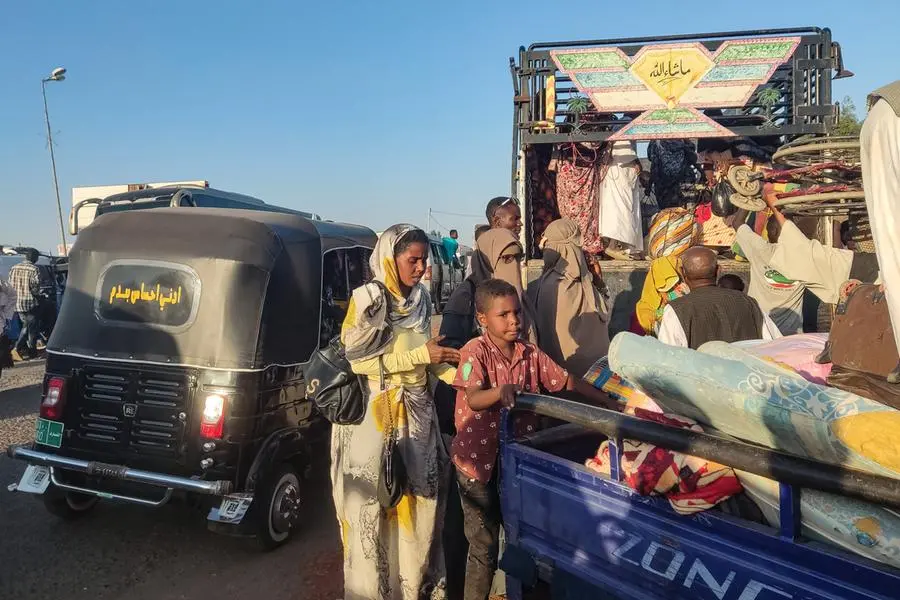PHOTO
One year since the conflict in Sudan erupted, thousands of desperate people are still fleeing the country daily "as if the emergency had started yesterday", the UN said Tuesday.
Around 1.8 million people have escaped across the country's borders since the fighting broke out, while 6.7 million more have fled their homes but remain within Sudan.
"A year on, the war in Sudan continues to rage, with the country and its neighbours experiencing one of the largest and most challenging humanitarian and displacement crises in the world," said Olga Sarrado Mur, spokeswoman for the United Nations' refugee agency UNHCR.
"The ongoing conflict has shattered people's lives, filling them with fear and loss. Attacks on civilians, and conflict-related sexual and gender-based violence, continue unabated," she told a press briefing in Geneva.
"Sudan has experienced the almost complete destruction of its urban middle class: architects, doctors, teachers, nurses, engineers and students have lost everything," she said.
Fighting in Sudan erupted on April 15 last year between forces loyal to the army chief Abdel Fattah al-Burhan and those of Mohamed Hamdan Daglo, his former deputy and commander of the paramilitary Rapid Support Forces.
The conflict has killed thousands and has sparked a humanitarian disaster.
"Thousands are crossing borders daily as if the emergency had started yesterday," Sarrado Mur said.
Those fleeing the country, who are mostly women and children, are arriving in remote areas across the border "with little to nothing and in desperate need of food, water, shelter and medical care", she added.
"As the conflict continues, and the lack of assistance and opportunities deepens, more people will be forced to flee Sudan to neighbouring countries or to move further, risking their lives by embarking on long, dangerous journeys to safety."
The humanitarian response plan for inside Sudan is so far six percent funded, while the 2024 regional refugee response plan is seven percent funded.
The war has destroyed Sudan's already fragile infrastructure and pushed the country to the brink of famine.
Around 25 million people -- more than half the population -- need aid, including nearly 18 million who face acute food insecurity, according to the UN.





















